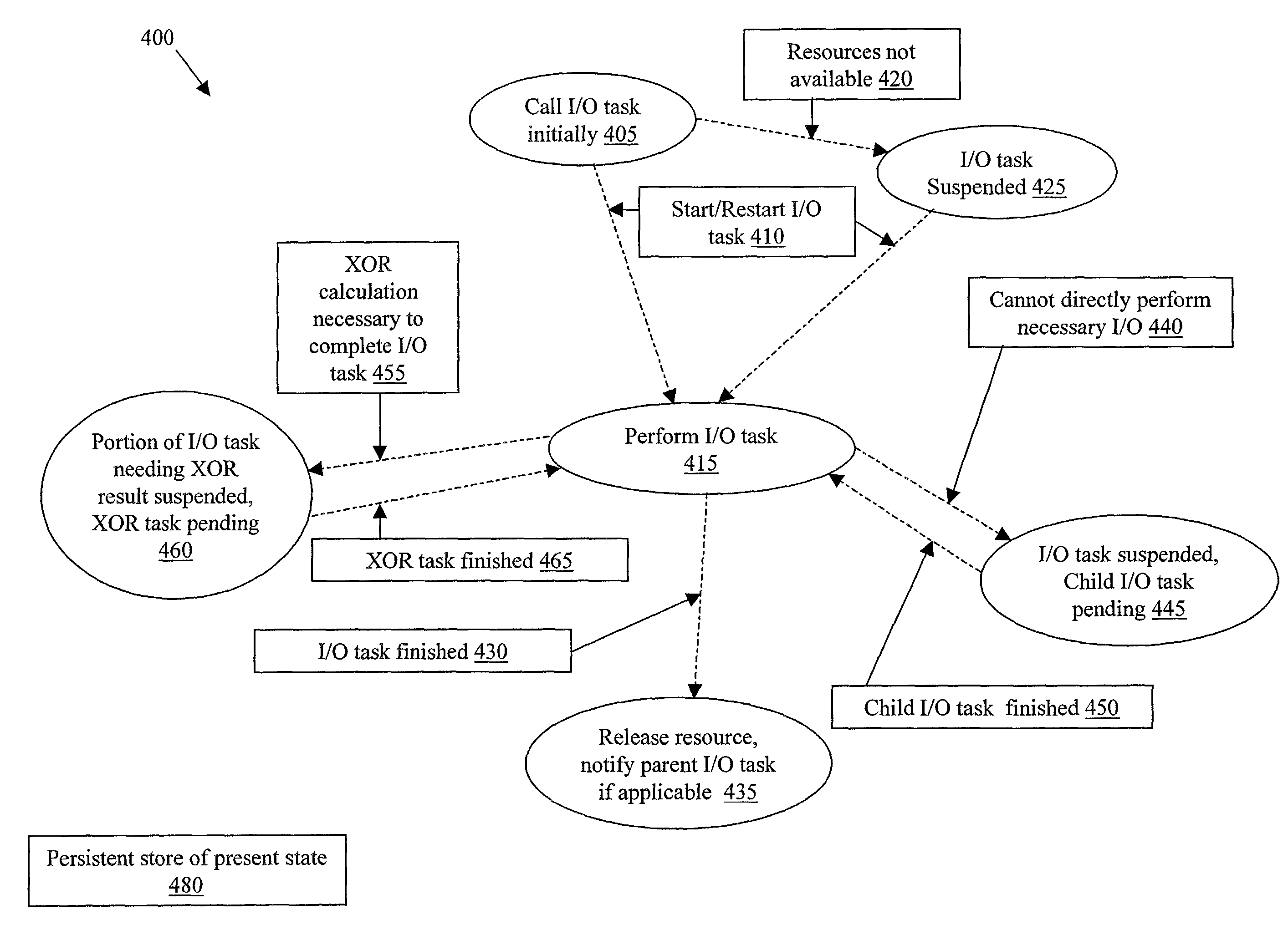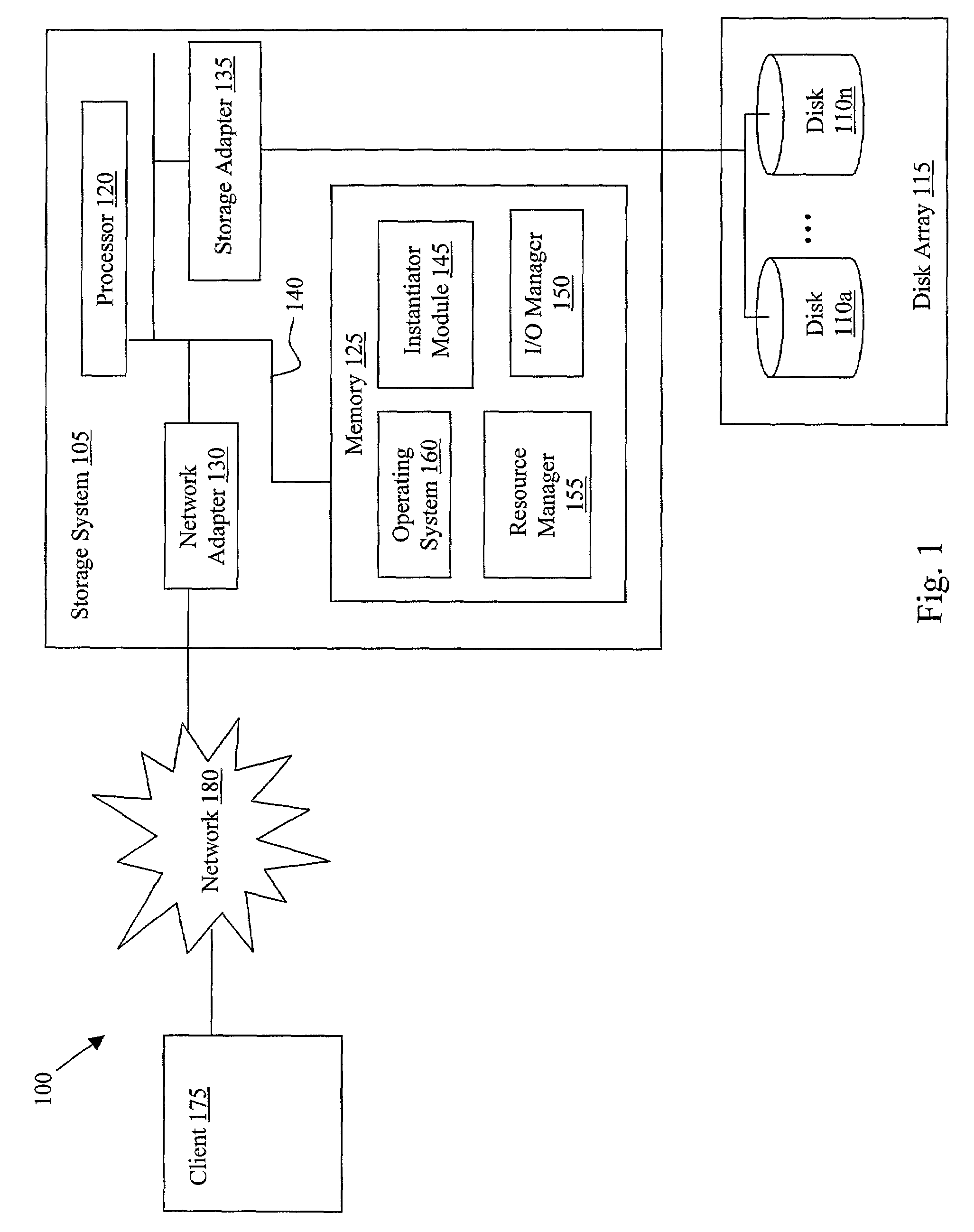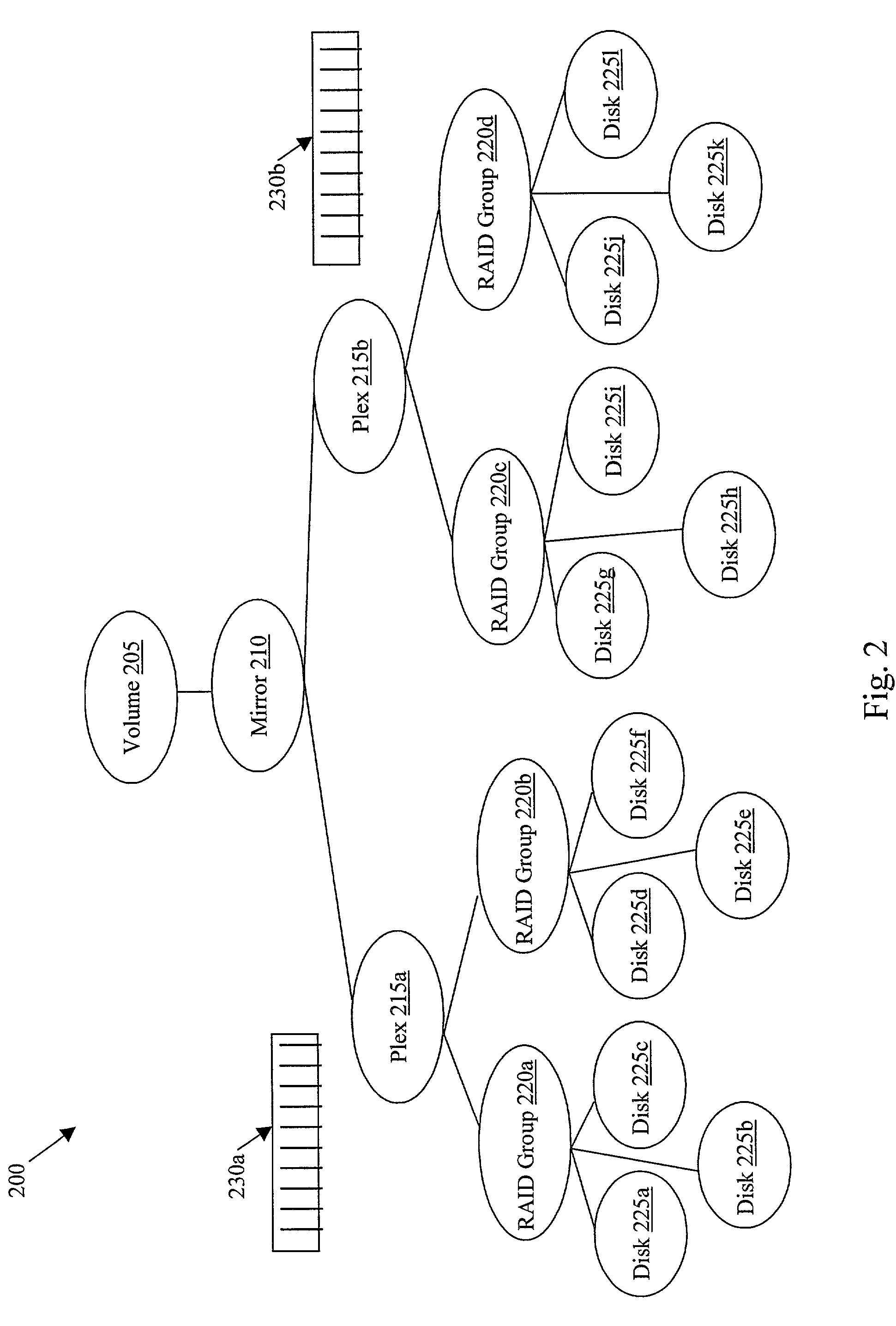Method and apparatus for runtime resource deadlock avoidance in a raid system
a runtime resource and raid system technology, applied in the field of high reliability electronic data storage, can solve the problems of data loss, data loss, and failure of disks or other storage media, and achieve the effects of avoiding data loss, avoiding data loss, and balancing load
- Summary
- Abstract
- Description
- Claims
- Application Information
AI Technical Summary
Benefits of technology
Problems solved by technology
Method used
Image
Examples
Embodiment Construction
[0027]In broad overview, FIG. 1 illustrates an environment 100 including a storage system 105 that may be advantageously used with the present invention. The storage system 105 is a computer that provides storage services relating to the organization of information on storage devices, such as disks 110a, 110n, generally 110, of a disk array 115. The storage system 105 comprises a processor 120, a memory 125, a network adapter 130 and a storage adapter 135 interconnected by a system bus 140.
[0028]In the illustrative embodiment, the memory 125 includes an instantiator module 145 and an I / O manager 150 that implements an I / O task architecture for processing data access requests. The instantiator module 145 is the portion of the software and / or hardware that defines the data structures of an object, for example, an I / O task and manages the generation of each instance of an I / O task. The I / O manager 150 is the portion of software and / or hardware that implements an I / O threading mechanism...
PUM
 Login to View More
Login to View More Abstract
Description
Claims
Application Information
 Login to View More
Login to View More - R&D
- Intellectual Property
- Life Sciences
- Materials
- Tech Scout
- Unparalleled Data Quality
- Higher Quality Content
- 60% Fewer Hallucinations
Browse by: Latest US Patents, China's latest patents, Technical Efficacy Thesaurus, Application Domain, Technology Topic, Popular Technical Reports.
© 2025 PatSnap. All rights reserved.Legal|Privacy policy|Modern Slavery Act Transparency Statement|Sitemap|About US| Contact US: help@patsnap.com



